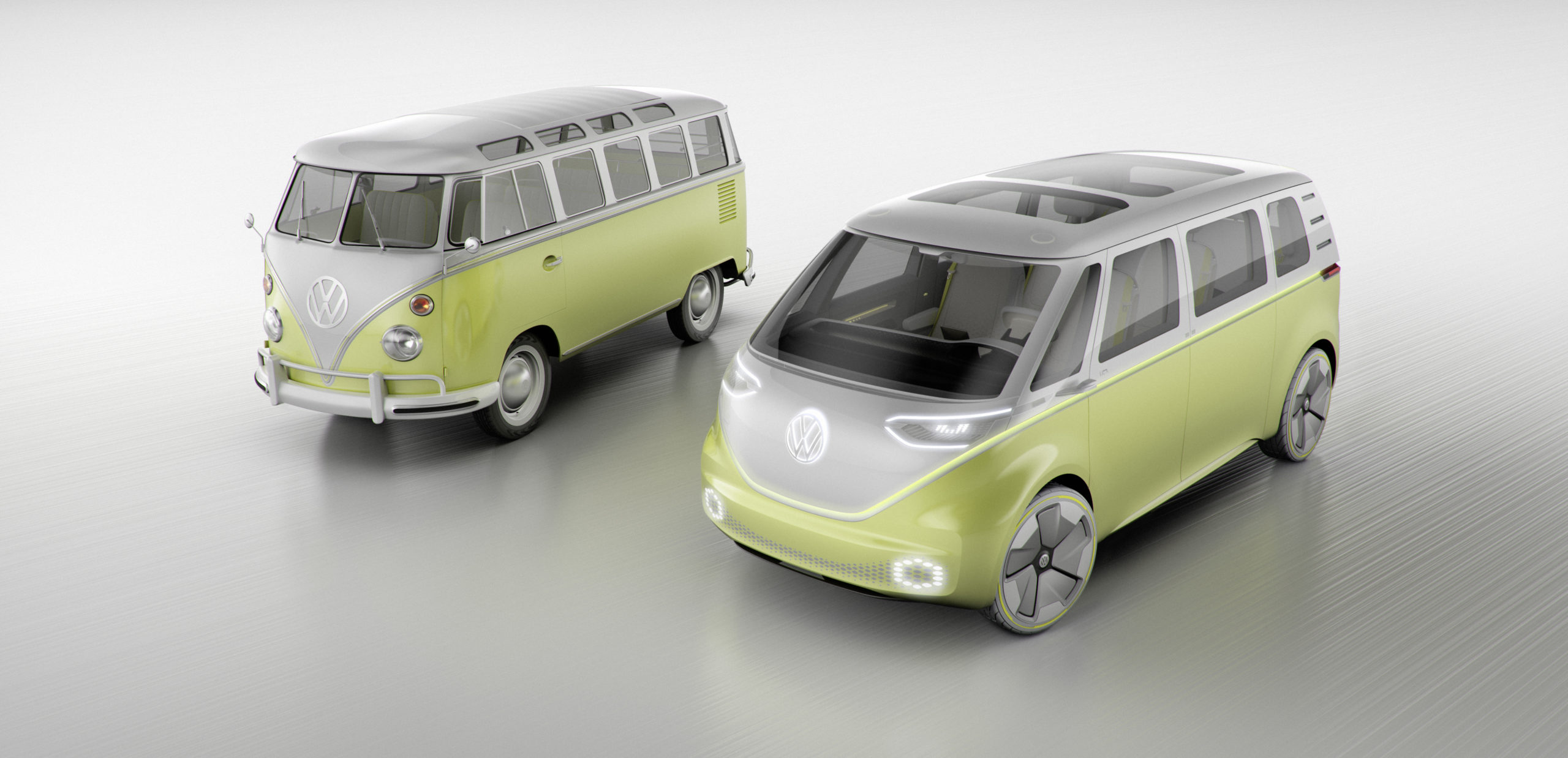According to new reports coming out of Germany, Volkswagen’s revival of its classic microbus, the electric VW ID.Buzz, may come with a starting price of less than $50,000.
In 2017, Volkswagen present the I.D. BUZZ electric microbus as a cool concept that gave a whole new meaning to “van life.” However, it wasn’t clear if the German automaker had plans to actually bring the electric bus to market or if it was simply just a cool electric vehicle concept. However, the company ultimately confirmed that it was serious about bringing the vehicle to market saying it was aiming for a 2022 production timeline.
With production inching closer by the day, new details about the production version of the VW ID.Buzz have apparently been leaked in Germany.
When first presenting the VW ID.Buzz, Volkswagen said the vehicle would be equipped with a massive 111 kWh battery pack which would set it up for an exceptional range.
However, according to Germany’s Edison, sources within VW have stated that the automaker is planning two versions with around 60 kWh and 100 kWh packs: “The battery formats differ from ID.3 and ID.4. According to the current state of affairs, the inexpensive entry-level version has a battery with around 60 kWh, which should be good for a good 300 kilometers range (according to the WLTP standard). According to VW findings, an ideal value for short-haul traffic in larger cities. The large battery, on the other hand, is planned with around 100 kWh – the more than 500 kilometers range should make the bus fully suitable for travel.”
Whether or not both packs are going to be available for all versions of the VW ID.BUZZ is still unknown.
Edison’s report also states that the VW ID.BUZZ will likely come to market with a price between 40,000 and 60,000 euros depending on the version. Between $47,500 to $71,300 in USD, however with different taxes and state EV incentives those numbers will change depending on where the buyer is located.
Furthermore, VW is expected to use the ID.BUZZ as a platform for its self-driving driving technology which, according to the report, they have now started testing using the electric van in Germany.

